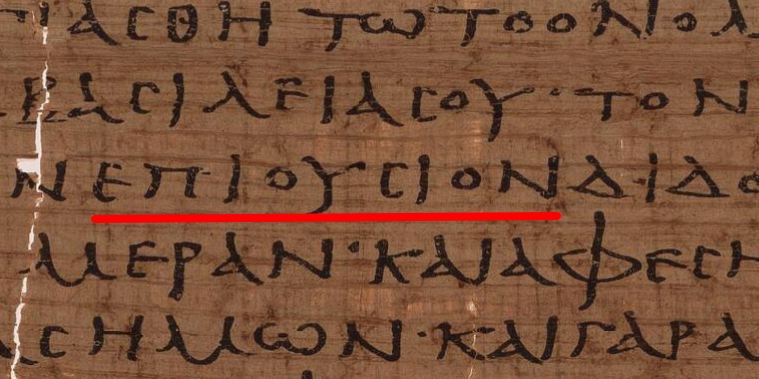the full line being “Give us today our epiousion bread”
Today, most scholars reject the translation of epiousion as meaning daily. The word daily only has a weak connection to any proposed etymologies for epiousion. Moreover, all other instances of “daily” in the English New Testament translate hemera (ἡμέρα, “day”), which does not appear in this usage.[1][2] Because there are several other Greek words based on hemera that mean daily, no reason is apparent to use such an obscure word as epiousion.[4] The daily translation also makes the term redundant, with “this day” already making clear the bread is for the current day.[21]
i don’t think wikipedia mentions this but it has ‘pious’ in the middle



I’m not the person you were responding to, but found your question interesting.
I re-read most of the Wikipedia article on Markan Priority. Imo These parts of the article sum up the argument nicely.
…
…